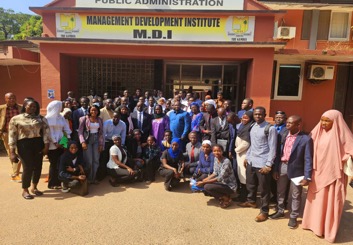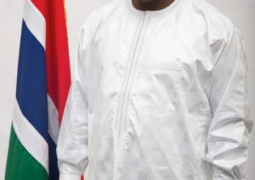
The lecture, attended by students and lecturers from the Department of Diplomacy and International Relations, as well as other faculty and management staff, highlighted the increasing interdependence between intelligence and diplomacy in today’s complex global landscape.
In his lecture, Director General Sowe emphasised the critical need for intelligence in informing diplomatic strategies and decision-making processes, stating that diplomacy is not just about negotiations and treaties. “However, it is increasingly guided by actionable intelligence that provides the groundwork for understanding global threats and opportunities.”
This public lecture served as a reminder of the critical role that intelligence plays in shaping effective diplomatic strategies in today’s interconnected world, equipping the next generation of diplomats with the knowledge essential for navigating tomorrow’s challenges.
Throughout the lecture, the Director General underscored several key areas where intelligence significantly shapes diplomatic efforts ranging from counter-terrorism initiatives to cyber security negotiations, modern diplomacy as intricately linked to the ability to gather, analyze, and act upon intelligence data.
The Director General cited several recent case studies where effective intelligence contributed to the resolution of international crises, highlighting that the interplay between intelligence and diplomacy can often make the difference between conflict and collaboration.
The lecture also delved into the ethical dimensions of intelligence in diplomacy.
“It is essential to understand not only the value of intelligence but also the moral implications, with related challenges, of the decisions that come from it especially when balancing national interest with global ethical standards.”
Students were actively engaged throughout the lecture, with many posing insightful questions concerning the evolving nature of intelligence-gathering technologies and their impact on international relations. A student asked how emerging technologies such as artificial intelligence is changing the ways states conduct diplomacy.
The Director General in his response highlighted both the potential benefits and risks associated with these advancements. He stated that it is crucial to leverage technology for positive diplomatic outcomes while simultaneously remaining vigilant against its misuse and abuse.





